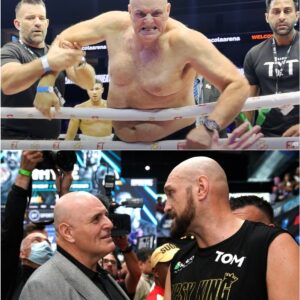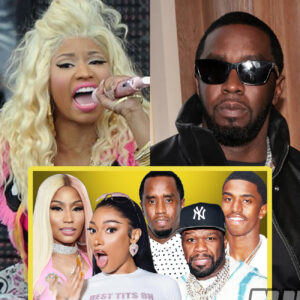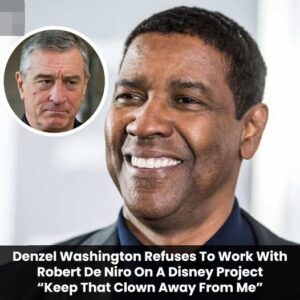**Monique’s Explosive Exposé: Revealing the Dark Side of Hollywood’s Black Elite**
Monique, the award-winning comedian and actress, has decided to break her silence and expose the alleged exploitation and unfair practices within Hollywood, particularly targeting influential figures like Tyler Perry and Oprah Winfrey. Her revelations have sent shockwaves through the industry, challenging the status quo and calling for greater transparency and fairness.
### Monique’s Encounter with Tyler Perry
In an interview with Comedy Hype, Monique detailed her experiences with Tyler Perry, one of Hollywood’s most powerful figures. Although she had never worked directly with Perry, she recounted a significant encounter during a meeting at the Hoodie Awards.

Monique alleged that Perry attempted to intimidate her into working for free by promising future financial gains that never materialized. This, she claimed, was part of a broader pattern of exploiting Black talent.
“You may really want to consider promoting this film because if you get nominated for an Oscar, your next film is $3 to $5 million,” Perry purportedly told Monique, trying to convince her to waive her compensation for the promotional campaign of the film “Precious.”
However, Monique, aware of the wage gap and exploitation in the industry, refused to be manipulated. “What I cannot do, Tyler, is work for free,” she firmly stated.
### The Precious Controversy
Monique’s journey with the film “Precious” is a pivotal chapter in her career. Initially signed as the lead for what was just an independent film, “Precious” gained massive acclaim at the Sundance Film Festival. Tyler Perry and Oprah Winfrey came on board as executive producers post-Sundance, significantly raising the film’s profile.
However, Monique faced immense pressure from Oprah and Perry to participate in a promotional campaign without additional pay. They argued that this would increase her market value and future earnings, but Monique stood her ground, refusing to work without fair compensation. This resistance, she believes, led to her being blackballed in the industry.
### The Broader Issue of Exploitation
Monique’s story is not an isolated incident but reflects a systemic issue within Hollywood. She highlighted how Black women are often devalued in the industry, using the example of Taraji P. Henson.
Henson, a highly talented actress, struggled for years to receive fair compensation. “I was asking for half a million; I didn’t get paid that until I did my first Tyler Perry film,” Henson once stated.
Perry took pride in being the first to pay Henson the highest paycheck of her career, but Monique questioned whether it was truly fair or merely higher than her previously underpaid roles.
### Calling Out the Cowards
Monique did not hold back in her critique of Hollywood’s Black elite, describing them as cowards who exploit younger, inexperienced actors to make a quick buck. She specifically named Tyler Perry, alleging that he, along with others like T.D. Jakes, maintains a facade of integrity while participating in exploitative practices.
Monique’s critique extended to veteran Black celebrities like Whoopi Goldberg. She revealed that Goldberg, despite her long tenure on “The View,” accepted a salary that Monique found disappointingly low.
This acceptance, Monique argued, makes it harder for other Black women in the industry to fight for fair pay. “Because you accept that salary, it makes it hard for me, and how hard do you think it’s going to be for the ones who ain’t here yet?” she lamented.
### The Consequences of Speaking Out
Monique’s decision to speak out came with significant personal and professional costs. She recounted a conversation with director Lee Daniels, who informed her that she had been blackballed for not playing the industry’s game. This blacklisting affected her career prospects and opportunities, despite her Oscar win for “Precious” in 2010.
“What I understood was that when I won that Oscar, things would change. It should come with more respect, more choices, and more money. It should and normally does,” Monique said. However, her career did not see the expected upward trajectory, reinforcing her claims of systemic bias and retribution.
### Negotiation and Manipulation
When Tyler Perry recognized that Monique’s outspokenness was making an impact, he attempted to negotiate. However, his terms were unacceptable to Monique. He wanted her to apologize to him and Oprah Winfrey and insisted on meeting without her husband present. Monique refused, seeing it as another attempt to manipulate and silence her.
### A Call for Change
Monique’s expose is a powerful call to action. She urges the industry to address its systemic issues and for Black women in Hollywood to stand up for their rights. Her story is a reminder of the importance of fair compensation, respect, and transparency in the entertainment industry.
### Conclusion
Monique’s revelations have ignited a crucial conversation about the treatment of Black talent in Hollywood. Her courage in speaking out against powerful figures like Tyler Perry and Oprah Winfrey highlights the need for systemic change.
By shedding light on these injustices, Monique hopes to pave the way for a more equitable and inclusive industry, where talent is valued, and exploitation is no longer tolerated.
News
Drama in the Ring! Tyson Fury Terminates John Fury’s Role as Trainer After Brutal Upset by Oleksandr Usyk
In a dramatic turn of events, Tyson Fury has decided to terminate his father John Fury’s role as his trainer following a brutal upset by Oleksandr Usyk. The unexpected loss has sent shockwaves through the boxing community and led to…
(VIDEO) Megan Thee Stallion BAITS Nicki Minaj into another rap beef? | 50 Cent DRAGS Diddy’s son Christian
**Christian Combs Disses 50 Cent and 50 Responds: A Clash of Hip-Hop Titans** In the realm of hip-hop, beefs and controversies are almost as common as chart-topping hits. Recently, a new chapter unfolded in the ongoing saga between Christian Combs,…
Breaking: Gordon Ramsay Throws Robert De Niro Out Of His Restaurant, “Don’t Come Back Here You Woke Baby”
In a dramatic and unexpected turn of events, renowned celebrity chef Gordon Ramsay has made headlines by reportedly throwing Academy Award-winning actor Robert De Niro out of his restaurant. The incident, which has sparked widespread media attention and public debate,…
(VIDEO) Joe Rogan & Matthew McConaughey Exposes 7 Actors Hollywood BETRAYED
**Unveiling the Dark Side of Hollywood: The Stories of Matthew McConaughey, Keanu Reeves, and Wesley Snipes** Hollywood, often seen as a dreamland of glitz and glamour, has a hidden underbelly that reveals a starkly different reality for some of its…
Breaking: Denzel Washington Rejects $100 Million Disney Offer to Work with ‘Woke’ Robert De Niro, ‘He’s a Creepy Old Man’
In a recent turn of events that has left Hollywood in a state of shock and contemplation, Denzel Washington, a figure synonymous with integrity and talent in the film industry, has made headlines by rejecting a colossal $100 million offer…
Breaking: Robert De Niro Gets Kicked Out Of The Warner Bros. Studio, “Keep Your Wokeness Out”
In a shocking turn of events that has sent ripples through Hollywood, iconic actor Robert De Niro was reportedly thrown out of Warner Bros. Studios. The reason cited? Spreading his “creepiness.” This incident has sparked intense debate and controversy, leaving…
End of content
No more pages to load











